About WOTR
About WOTR

Established in 1993, WOTR is an internationally recognised non-profit organisation and think tank that engages at the intersection of practice, knowledge and policy across scales and in collaboration with various stakeholders across sectors. WOTR’s goal is to ensure water and food availability, along with livelihoods and income security – to support the sustainable growth and well-being of vulnerable and disadvantaged communities in rural India.
WOTR has been working with rural communities in India for 3 decades now. As of September 2023, it has touched the lives of over 6.93 million across 7124 villages in 10 states of India – Maharashtra, Telangana, Andhra Pradesh, Madhya Pradesh, Jharkhand, Odisha, Rajasthan, Chhattisgarh, Bihar and Karnataka. It has included participants from 63 countries in training and exposure programmes. On the ground over 2.64 million hectares of degraded landscapes/watersheds have been regenerated, over 158 billion litres of potential water harvesting capacity has been created and agriculture productivity has increased significantly with a 121% increase in area under triple cropping. Farm incomes in most project villages are 2 to 4 times more than those in control villages. Moreover, it has facilitated over 21,500 SHGs involving 2,52,829 women.
Areas of Work
Watershed Development and Ecosystem Management
Integrated Water Resources Management
Climate Resilient Agriculture
Sustainable Rural Livelihoods
Biodiversity
Women Empowerment
Nutrition, Health and Sanitation
Cross-cutting thematics across these areas include adaptation and resilience to climate change, institutional development, governance and policy engagement.
Vision
Resilient rural communities that enjoy a fulfilling quality of life within vibrant and sustainable ecosystems.
Mission
WOTR tackles the key causes of rural poverty by rejuvenating ecosystems and building the community’s resilience to climate change. We enhance the availability of water, increase the productivity of land and agriculture, diversify livelihoods, empower women, and strengthen the health and well-being of vulnerable rural communities.
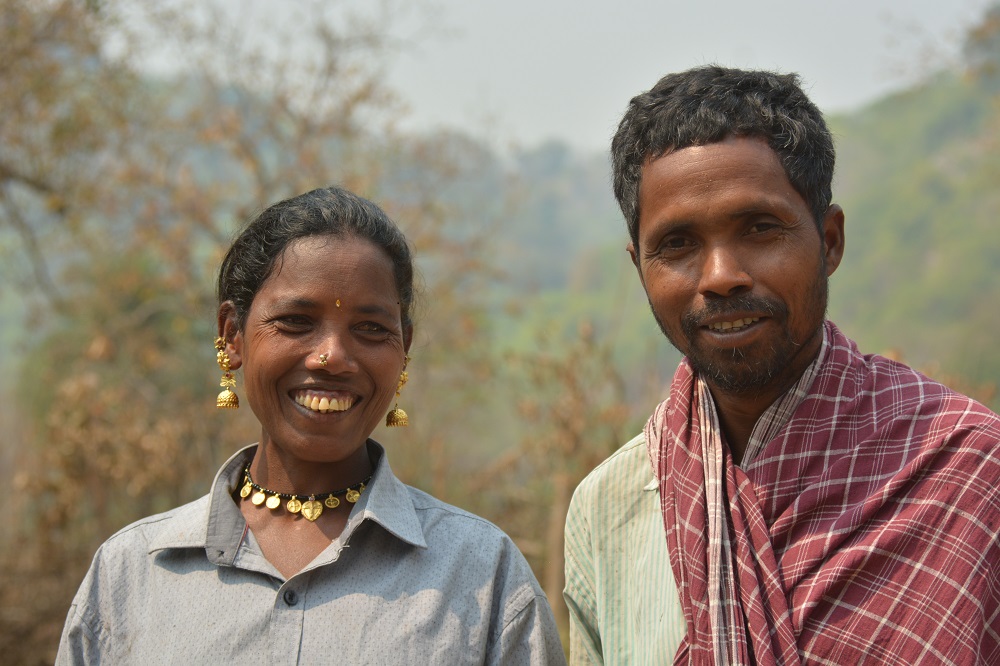
Founders
Our Founders are regarded as the pioneers of participatory watershed development in India, having designed and launched the well-known bilateral Indo-German Watershed Development Program in collaboration with NABARD (IGWDP) which laid the foundation for the setting up of the national Watershed Development Fund (WDF) at NABARD by the Government of India in 1999. They were also instrumental in initiating the establishment of the National Adaptation Fund for Climate Change (NAFCC) in 2015 at the Ministry of Environment and Forests and Climate Change.
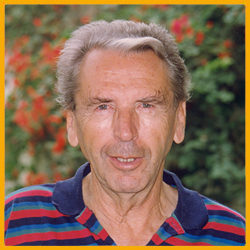 Late Father Hermann Bacher is regarded as the ‘Father of Community-led Watershed Development in India.’ Originally a teacher from Switzerland, he made India his home early in life. He initiated the Indo-German Watershed Development Programme and his efforts brought about the emergence of the now widely used participatory model of watershed development. Among his various outstanding contributions is the creation of a cadre of grassroots professionals with a common vision and a passion for promoting community-led watershed development at the village level.
Late Father Hermann Bacher is regarded as the ‘Father of Community-led Watershed Development in India.’ Originally a teacher from Switzerland, he made India his home early in life. He initiated the Indo-German Watershed Development Programme and his efforts brought about the emergence of the now widely used participatory model of watershed development. Among his various outstanding contributions is the creation of a cadre of grassroots professionals with a common vision and a passion for promoting community-led watershed development at the village level.
After 60 years of service in Maharashtra, dedicated to the upliftment of the poor, the landless and rural women, Fr. Bacher returned to his hometown in Switzerland, where he breathed his last on 14th September 2021. In recognition of his outstanding efforts, Fr. Bacher was given Germany’s highest civilian award, the Federal Cross of the Order of Merit in 1994 at a ceremony in the watershed village of Mendhwan in Sangamner. This was followed by the Krishi Bhushan, at the hands of the Governor of Maharashtra, in the same year. Several honors followed and in 2010, the Government of Maharashtra conferred upon him and WOTR its highest Award in agriculture, “The Dr. Punjabrao Deshmukh Krishi Ratna”.
 Crispino Lobo, Co-Founder & Managing Trustee of WOTR, is well regarded in the national and international development circles for his knowledge and achievements in the fields of natural resource management, participatory watershed development and integrated water resources management. Crispino has also contributed to central and state policy level changes through participation in a number of committees. His contributions at the Pre-Budget Consultations on Agriculture, in which he has regularly participated for the last 22 years, led to the establishment of the Watershed Development Fund (WDF) and the National Adaptation Fund for Climate Change (NAFCC) at the MoEF&CC. He is regularly invited to address the development community both in India and overseas at conferences and seminars.
Crispino Lobo, Co-Founder & Managing Trustee of WOTR, is well regarded in the national and international development circles for his knowledge and achievements in the fields of natural resource management, participatory watershed development and integrated water resources management. Crispino has also contributed to central and state policy level changes through participation in a number of committees. His contributions at the Pre-Budget Consultations on Agriculture, in which he has regularly participated for the last 22 years, led to the establishment of the Watershed Development Fund (WDF) and the National Adaptation Fund for Climate Change (NAFCC) at the MoEF&CC. He is regularly invited to address the development community both in India and overseas at conferences and seminars.
Founders
Our Founders are regarded as the pioneers of participatory watershed development in India, having designed and launched the well-known bilateral Indo-German Watershed Development Program in collaboration with NABARD (IGWDP) which laid the foundation for the setting up of the national Watershed Development Fund (WDF) at NABARD by the Government of India in 1999. They were also instrumental in initiating the establishment of the National Adaptation Fund for Climate Change (NAFCC) in 2015 at the Ministry of Environment and Forests and Climate Change.
 Late Father Hermann Bacher is regarded as the ‘Father of Community-led Watershed Development in India.’ Originally a teacher from Switzerland, he made India his home early in life. He initiated the Indo-German Watershed Development Programme and his efforts brought about the emergence of the now widely used participatory model of watershed development. Among his various outstanding contributions is the creation of a cadre of grassroots professionals with a common vision and a passion for promoting community-led watershed development at the village level.
Late Father Hermann Bacher is regarded as the ‘Father of Community-led Watershed Development in India.’ Originally a teacher from Switzerland, he made India his home early in life. He initiated the Indo-German Watershed Development Programme and his efforts brought about the emergence of the now widely used participatory model of watershed development. Among his various outstanding contributions is the creation of a cadre of grassroots professionals with a common vision and a passion for promoting community-led watershed development at the village level.
After 60 years of service in Maharashtra, dedicated to the upliftment of the poor, the landless and rural women, Fr. Bacher returned to his hometown in Switzerland, where he breathed his last on 14th September 2021. In recognition of his outstanding efforts, Fr. Bacher was given Germany’s highest civilian award, the Federal Cross of the Order of Merit in 1994 at a ceremony in the watershed village of Mendhwan in Sangamner. This was followed by the Krishi Bhushan, at the hands of the Governor of Maharashtra, in the same year. Several honors followed and in 2010, the Government of Maharashtra conferred upon him and WOTR its highest Award in agriculture, “The Dr. Punjabrao Deshmukh Krishi Ratna”.
 Crispino Lobo, Co-Founder & Managing Trustee of WOTR, is well regarded in the national and international development circles for his knowledge and achievements in the fields of natural resource management, participatory watershed development and integrated water resources management. Crispino has also contributed to central and state policy level changes through participation in a number of committees. His contributions at the Pre-Budget Consultations on Agriculture, in which he has regularly participated for the last 22 years, led to the establishment of the Watershed Development Fund (WDF) and the National Adaptation Fund for Climate Change (NAFCC) at the MoEF&CC. He is regularly invited to address the development community both in India and overseas at conferences and seminars.
Crispino Lobo, Co-Founder & Managing Trustee of WOTR, is well regarded in the national and international development circles for his knowledge and achievements in the fields of natural resource management, participatory watershed development and integrated water resources management. Crispino has also contributed to central and state policy level changes through participation in a number of committees. His contributions at the Pre-Budget Consultations on Agriculture, in which he has regularly participated for the last 22 years, led to the establishment of the Watershed Development Fund (WDF) and the National Adaptation Fund for Climate Change (NAFCC) at the MoEF&CC. He is regularly invited to address the development community both in India and overseas at conferences and seminars.
Journey & Milestones
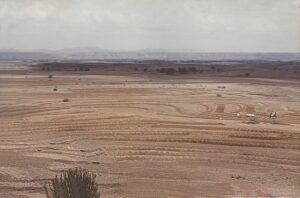
Conceptualization of WOTR for coordinating the IGWDP and promoting a national movement for watershed development
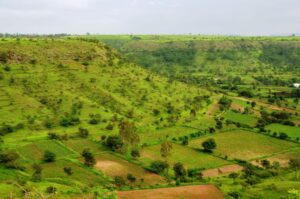
WOTR formally established as a trust

Father Bacher awarded the Federal Cross of the Order of Merit, Germany’s highest civilian award
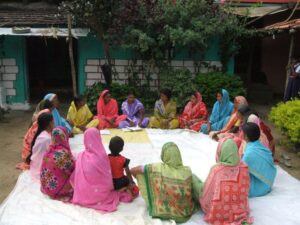
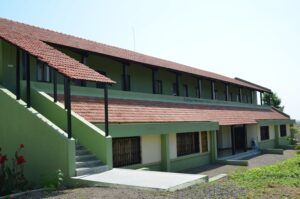
Father Hermann Bacher Learning Centre, also known as Darewadi Learning Centre established
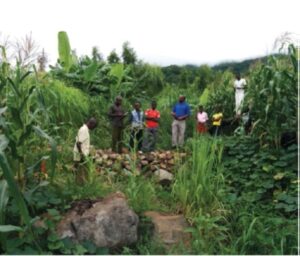
WOTR’s first extension outreach to Somaliland, South Africa
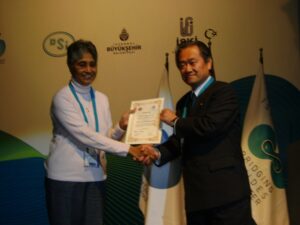
Awarded the Kyoto World Water Grand Prize 2009 at the 5th World Water Forum in Istanbul, Turkey
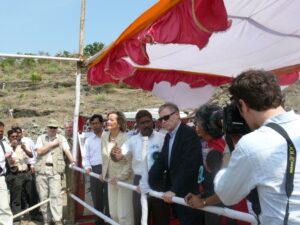
Visit by President of the Federal Republic of Germany to WOTR’s project site

2012 – First locale-specific agro-advisory issued through SMS
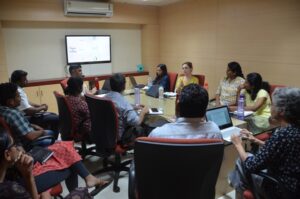
WOTR-Centre for Resilience Studies (WCReS) established
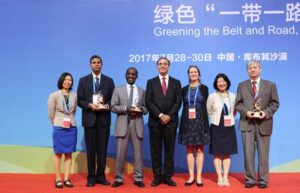
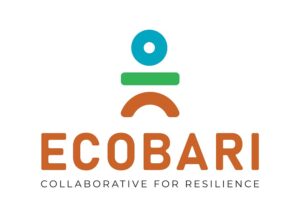
ECOBARI launched – national collaborative aimed at promoting Ecosystem-based Adapatation for Resilient Incomes


